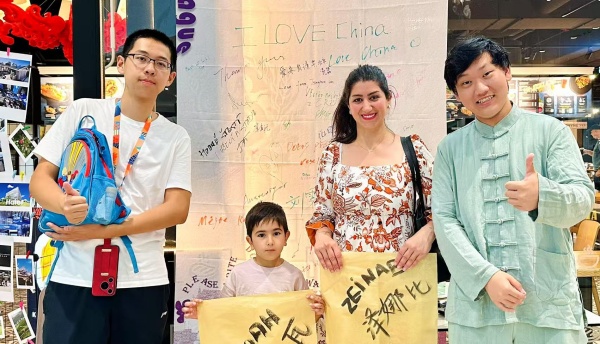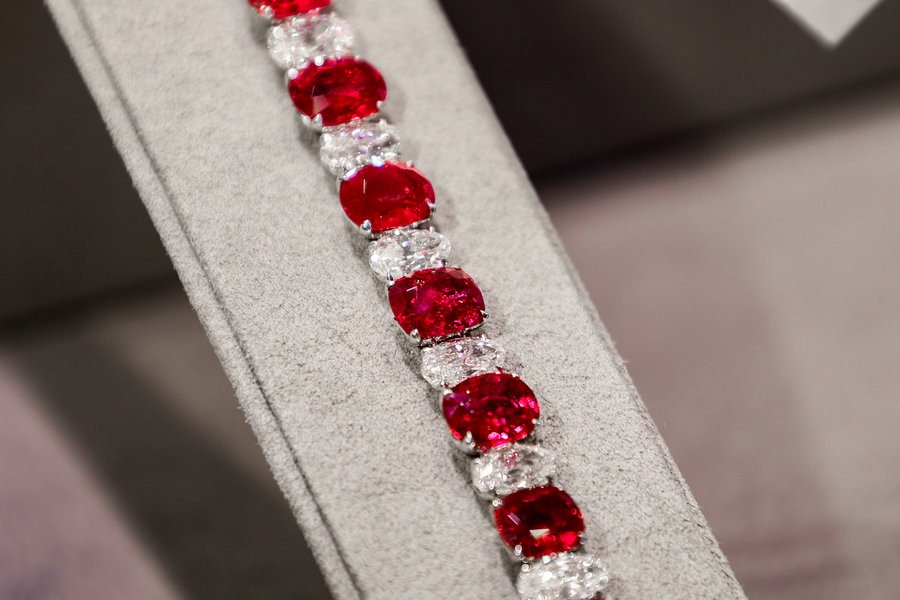Students explore China-Europe cultural connections


From July 14 to 19, a group of 13 students and faculty members from Tsinghua University traveled to the Czech Republic and Austria for a cultural and academic exchange.
Their journey included visits to international institutions, diplomatic missions, and Chinese enterprises in Europe, offering participants a closer look at global cooperation in action.
For 19-year-old philosophy student Yang Enshuo, the highlight was a visit to the European research and development center of China's CRRC Zhuzhou Locomotive Co. Ltd.in Vienna, Austria.
"The company's high-speed trains show how China and Europe can work together," Yang said. "They combine China's cutting-edge technology with designs that fit European preferences."
Yang observed that in China, high-speed trains usually have all seats facing the same direction, while in Europe, "face-to-face" seating is more common to suit local habits.
He also noticed that Chinese companies in Europe often employ large numbers of local staff, creating diverse, collaborative workplaces.
"Some even organize traditional Chinese cultural events, like dragon boat races, to bring local and Chinese employees together," he said.
Wang Yijun, a 22-year-old history graduate, was impressed by her visit to the Austrian branch of ZTE Corporation, a leading Chinese telecommunications company.
"I learned that Chinese products are no longer competitive just because of lower prices," Wang said. "They stand out for their environmental sustainability, strong delivery capabilities, and exceptional customer service."
However, after conducting a street interview with local residents, she realized that although Chinese companies are securing more overseas orders, many Europeans remain unaware of how deeply Chinese products and services are woven into their daily lives — from basic items to large-scale infrastructure projects like high-speed rail.
"They still tend to associate Chinese products with simpler items, like shirts or phone cases," Wang said.
Zong Qiyue, a 20-year-old Chinese literature major, shared a similar view.
During her conversation with a reporter from Nouvelles D'Europe, she found that when it comes to East Asia, Europeans are often more familiar with Japanese anime, Korean soap operas, and K-pop than with Chinese culture. Many still think of China in terms of traditional symbols such as the Great Wall, the Forbidden City, or kung fu star Bruce Lee.
"We should introduce China in a more comprehensive way, beyond these traditional images," Zong said. "Cultural exchange should focus on sharing simple, everyday stories — just like chatting with friends."
Building new connections
Beyond the formal visits, the students also had the opportunity to engage with local university students in Prague, Czech Republic.
Li Jinyuan, 19, fondly recalled the cafe where they met, nestled in the city's old town, which dates back to the 13th century.
"In such a historic setting, we shared many of the same challenges of growing up," Li said. "Despite our cultural differences, I realized young people have a lot in common."
On the final day of their trip, the group staged a cultural showcase at a shopping mall in Prague. It featured performances of pipa (Chinese lute) and ocarina, as well as calligraphy and kung fu demonstrations.
Li joined his classmates in performing kung fu, receiving cheers from both locals and tourists.
"It's been a valuable experience, especially in the 50th anniversary of China-EU diplomatic relations," he said.
Wang, a pipa player, had a heartwarming moment with a group of children who were captivated by her performance. One girl, about three years old and barely half the height of the instrument, came forward to touch it.
"I gently placed it on her knees and showed her how to play," Wang recalled with a smile.
As part of the road show, the students also offered to write attendees' Chinese names in calligraphy. Many tourists proudly held up their personalized souvenirs, taking selfies with what they called "symbols of friendship".
"This trip made me realize how important it is to step outside our comfort zones while we're young — to listen to different perspectives and embrace a more diverse world," Wang said. "Only then, I believe, can we, as future leaders, build an inclusive world free of prejudice."



































